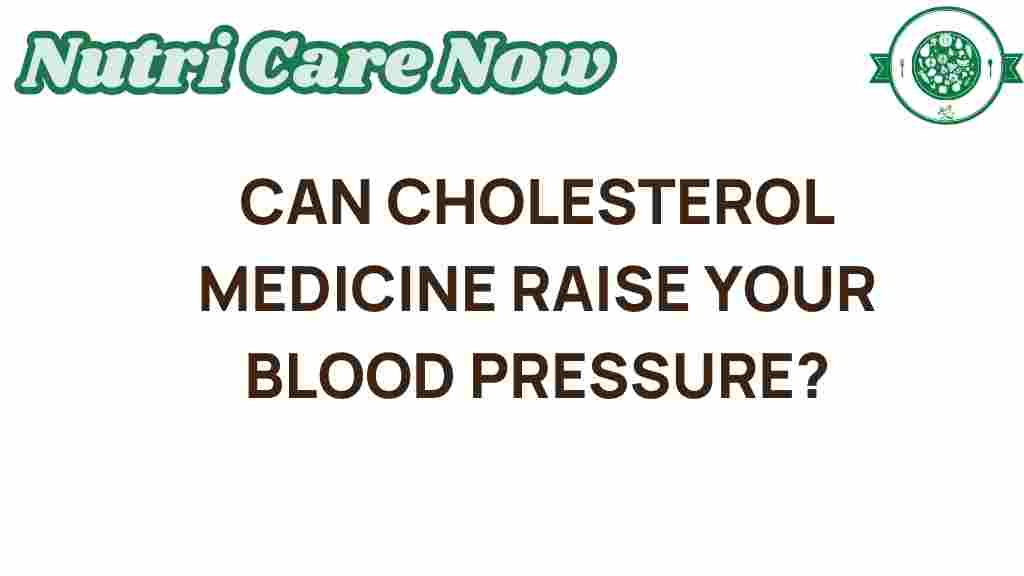The Surprising Link Between Cholesterol Medication and Blood Pressure
Cholesterol medication is widely prescribed to manage high cholesterol levels and reduce the risk of cardiovascular diseases. However, recent medical research has uncovered a surprising connection between cholesterol medication and blood pressure levels. Understanding this relationship is crucial for effective patient care and overall heart health. This article delves into the intricacies of how cholesterol medication affects blood pressure, the associated health risks, and what patients should be aware of regarding their treatment options.
The Basics of Cholesterol and Blood Pressure
Before diving into the link between cholesterol medication and blood pressure, it’s essential to understand what cholesterol and blood pressure are and why they matter:
- Cholesterol: A waxy substance found in your blood, cholesterol is vital for building cells and producing hormones. However, high levels of LDL (low-density lipoprotein) cholesterol can increase the risk of heart disease.
- Blood Pressure: This measures the force of blood against the walls of your arteries. High blood pressure (hypertension) can lead to severe health issues, including heart attack and stroke.
The Connection Between Cholesterol Medication and Blood Pressure
Cholesterol medications, particularly statins, are designed to lower cholesterol levels in the blood. Recent studies indicate that these medications may also have an impact on blood pressure:
- Statins: Research has shown that statin medications may provide a modest reduction in blood pressure in some patients. This effect is believed to be due to the improved endothelial function and reduced arterial stiffness.
- Combination Therapies: Some health professionals recommend using cholesterol medication alongside antihypertensive drugs to provide comprehensive cardiovascular protection.
The interplay between cholesterol levels and blood pressure is complex, and both conditions often coexist, leading to an increased risk of cardiovascular complications.
Health Risks Associated with Cholesterol and Blood Pressure
Managing both cholesterol and blood pressure is critical for reducing the risk of serious health issues:
- Cardiovascular Diseases: High cholesterol and high blood pressure are significant risk factors for heart disease, heart attacks, and strokes.
- Medication Side Effects: Cholesterol medication can cause side effects such as muscle pain, liver damage, and digestive issues. It’s essential to weigh these against the potential benefits.
- Drug Interactions: Patients taking multiple medications should be aware of possible interactions that could exacerbate health risks.
Understanding Medication Awareness
Being informed about your medications is a vital part of patient care. Here are some key points to consider:
- Consult Healthcare Providers: Always discuss your medications with your healthcare provider. They can help you understand the benefits and risks associated with cholesterol medication and its effects on blood pressure.
- Regular Monitoring: Regular check-ups can help monitor your cholesterol and blood pressure levels, ensuring that any necessary adjustments to your treatment plan are made.
- Educate Yourself: Patients should seek out credible sources of information regarding their medications and conditions. Reliable websites and resources can provide valuable insights.
Step-by-Step Process: Managing Cholesterol and Blood Pressure
Managing cholesterol and blood pressure involves a comprehensive approach that includes lifestyle changes and medication:
Step 1: Lifestyle Modifications
Consider making the following lifestyle changes:
- Diet: Adopt a heart-healthy diet rich in fruits, vegetables, whole grains, lean proteins, and healthy fats. Limit saturated fats, trans fats, and sodium.
- Exercise: Aim for at least 150 minutes of moderate aerobic activity each week to help lower cholesterol and blood pressure.
- Weight Management: Achieving and maintaining a healthy weight can significantly impact both cholesterol and blood pressure levels.
Step 2: Medication Adherence
Follow your healthcare provider’s prescribed regimen for medications:
- Follow Prescriptions: Take your medications as directed and don’t skip doses.
- Report Side Effects: If you experience any side effects, communicate with your doctor immediately to discuss potential alternatives or adjustments.
Step 3: Regular Health Check-Ups
Schedule regular appointments to monitor your health:
- Blood Tests: Regular blood tests can help track cholesterol levels and liver function.
- Blood Pressure Monitoring: Keep an eye on your blood pressure readings at home or during your doctor’s visits.
Troubleshooting Tips for Patients
Patients may encounter challenges while managing their cholesterol and blood pressure. Here are some troubleshooting tips:
- Side Effects: If you experience side effects from your cholesterol medication, consult your doctor to explore alternative medications or dosage adjustments.
- Difficulty Adhering to Lifestyle Changes: Seek support from friends, family, or a healthcare professional to help you stay motivated and accountable.
- Confusion Around Medications: Keep a medication list and take it to your appointments. This can help you and your doctor make informed decisions about your health.
Conclusion: The Importance of Awareness in Managing Heart Health
The link between cholesterol medication and blood pressure is an important aspect of cardiovascular health that deserves attention. Understanding how these medications function can empower patients to make informed decisions about their health. Regular communication with healthcare providers, adherence to prescribed treatments, and commitment to lifestyle changes are vital steps in managing cholesterol and blood pressure effectively.
By raising medication awareness and actively participating in your healthcare journey, you can significantly reduce the risks associated with high cholesterol and high blood pressure, leading to a healthier life. For additional information on managing these conditions and the latest medical research, connect with your healthcare provider or visit reputable health websites.
This article is in the category Health and created by NutriCareNow Team
